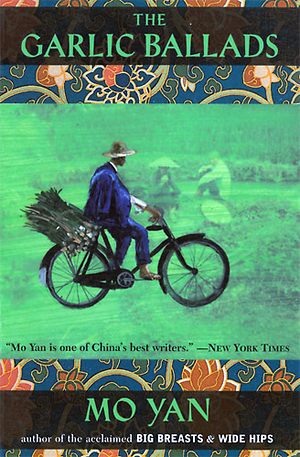Apr 24, 2025
Apr 24, 2025
 The Garlic Ballads which is one of the eleven novels of Mo Yan can without exaggeration be called the Chinese equivalent of The Sound and the Fury or something more. Mo who is the Chinese Dickens cuts rapidly between locations and times, but never too rapidly, striking a perfect balance between forwarding the plot and drawing back to offer perspective on the goings on.
The Garlic Ballads which is one of the eleven novels of Mo Yan can without exaggeration be called the Chinese equivalent of The Sound and the Fury or something more. Mo who is the Chinese Dickens cuts rapidly between locations and times, but never too rapidly, striking a perfect balance between forwarding the plot and drawing back to offer perspective on the goings on.
12-Oct-2012
More by : Dr. Ratan Bhattacharjee